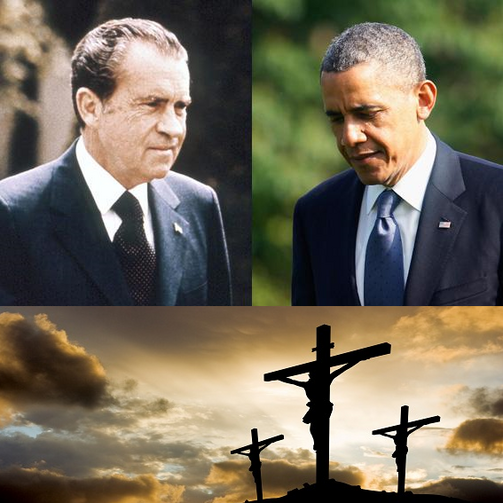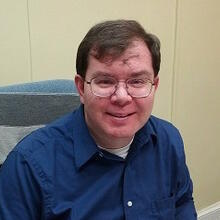In the wake of the terrorist attack, the president of the United States issued a statement. The president said:
…I directed the establishment of a Cabinet Committee to Combat Terrorism…aimed at bringing the full resources of all appropriate United States agencies to bear effectively on the task of eliminating terrorism wherever it occurs. I have charged it to move vigorously and immediately toward this end.
The use of terror is indefensible. It eliminates in one stroke those safeguards of civilization which mankind has painstakingly erected over the centuries.
But terror threatens more than the lives of the innocent. It threatens the very principles upon which nations are founded. In this sense, every nation in the United Nations, whatever its ideological assumptions, whoever its adversaries, wherever its sympathies, is united with every other nation by the common danger to the sovereignty of each. If the world cannot unite in opposition to terror, if we cannot establish some simple ground rules to hold back the perimeters of lawlessness, if, in short, we cannot act to defend the basic principles of national sovereignty in our own individual interests, then upon what foundations can we hope to establish international comity?
There are those who would tell us that terror is the last resort of the weak and the oppressed, a product of despair in an age of indifference, and that it seeks only political justice. This is nonsense. The way to seek justice is through negotiation. We have sought in our own relations to turn from confrontation to negotiation. We believe that this is the only way for grievances to be resolved in a way that will contribute to peace and stability.
In recent months we have seen nations moving to achieve accommodation and the resolution of differences, and we have seen terrorists acting to destroy those efforts. The time has come for civilized people to act in concert to remove the threat of terrorism from the world.
The world is reaching out for peace. The way may be hard and treacherous, but men of reason and decency are determined today, as perhaps never before, to make the effort. Let us not be disrupted or turned away by those who would loose anarchy upon the world; let us seek no accommodations with savagery, but rather act to eliminate it.
The president who made this statement was not Barack Obama.
The president who made this statement was Richard Milhous Nixon.
It was Mr. Nixon who made this statement, on September 27, 1972. President Nixon’s words, “Statement About Action To Combat Terrorism,” was made as Secretary of State William P. Rogers was addressing the United Nations on that very subject in the wake of the recent horrific act known as the “Munich Massacre” in which 11 Israeli athletes were murdered by Palestinian terrorists during the 1972 Olympic Games then being held in Munich, West Germany. The killings had occurred on Sept. 5, 1972 when the XX Olympiad was nearing its completion by the group that came to be known as “Black September.”
The athletes were residing in the “Olympic Village,” (a housing complex for participating Olympic athletes) when they were ambushed and killed. This act of terror, in which athletes were assembled peaceably in competition for the laurels of athletic glory, shocked and stunned the world. It was grievous for Israelis, as they were participating for the sixth time in the Games, for it was their athletes that were targeted and murdered out of blind hatred. For the West Germans—apart from the obvious horror of the deaths—it was also a grievous blow to their goal of actually hosting the Games as an attempt to restoring that country’s reputation and standing in the world, given its World War II past. And for the rest of the world, it was the birth of a new reality: that acts of terror and of war did not come from nations and states, but from groups and individuals, armed with guns and bombs, fueled by personal animosities, twisted ideologies, and tainted religious beliefs.
Unfortunately for humanity, the “Munich Massacre” was just the beginning, not the end of terror and terrorism. From that time to the present, from 1972 to 2015—a span of 43 years—many more incidents of terror and terrorism have occurred, varying in size and scope (the most well-known and the most horrific being September 11, 2001), but terroristic acts nevertheless and each one an assault on human decency.
And now we have the attack on Paris, the famed “City of Light.” The Paris of France, historically known as “eldest daughter of the church” and our eldest ally in freedom and independence. (The Statue of Liberty and the cry of World War I: “Lafayette! We are here!”) Attacks on nightclubs. Attacks on a music venue. Bombs going off outside a football stadium while a French-German match was in progress and an event which was attended by the French president and assembled German guests. (Had it not been for inexplicable tardiness of one of the assailants for the match, the attack would have been far worse—he was not allowed in, and he, wearing a bomb vest, ignited the carnage outside). Carnage, chaos, fear, uncertainty. Incredulity, anger, and now outrage.
All this, in a world where there is war without end.
Stern words will be spoken and outrage expressed. Politicians and candidates will wildly exclaim while frightened citizens will hurl at them what they have at hand: blame. International organizations will meet in emergency session; the media will record every movement, journalists will pen every word and specialists and analysts will invade all newsrooms everywhere to give their learned explanations and extrapolations as to the who, what, when, where and why. Flags at half-staff, both American and French. Words of solidarity and concord. Candles and flowers and memorials as far as the human eye can see. Everything to express the inexpressible, from the depths of grieving hearts. And faces lifted upward, only to lay bare the rivers of tears and the anguish that leaves each one in their own enclave of terror, the terror of doubt and the terror of existing in such a terrifying world. And prayers—many prayers, for a release from it and for its end. And all because…
And all because of some groups and individuals who live in this world only to hate.
And all because of some groups and individuals who live only to kill.
And all because of some groups and individuals rejoice in dying, thinking it a path to glory, when it is only a means to “fast-track” their way to eternal damnation.
All kinds of reasons and all kinds of excuses will be made, said and heard.
And none of them will satisfy the hurting heart.
Mr. Nixon’s words are haunting us now, even taunting us: “…If the world cannot unite in opposition to terror, if we cannot establish some simple ground rules to hold back the perimeters of lawlessness, if, in short, we cannot act to defend the basic principles of national sovereignty in our own individual interests, then upon what foundations can we hope to establish international comity?...”
How, then, will it be done?
No one has the answer yet, but it has to be stopped, somehow, someway.
We must realize that terror and terrorism didn’t just start some forty-odd years ago, in our “modern age.” It has always been a part of human history. For those of us who are Christian, it is a simple three-letter word: sin. An unbelievable act of terror was committed two millennia ago, up on hill called Calvary, when a man of peace was put to death because he dared to live by the words he preached by. He was put to death because there were those who didn’t like his way of life or the way he lived it; his assailants believed they knew better and believed themselves to be better beings than this lowly carpenter-teacher who hailed from Bethlehem and Nazareth.
Such hatred is beyond the pale of humanity and decency and yet we must battle it. A president said: “…Let us not be disrupted or turned away by those who would loose anarchy upon the world; let us seek no accommodations with savagery, but rather act to eliminate it.”
We know we must do it, because we cannot live with it.
And yet, from that hill in Calvary two millennia ago came these words: “Father, forgive them, for they know not what they do.”
We know we must say it, because without it, we cannot live with ourselves.








